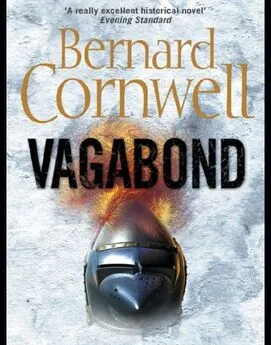Leo Frankowski - CONRADS QUEST FOR RUBBER
- Название:CONRADS QUEST FOR RUBBER
- Автор:
- Жанр:
- Издательство:неизвестно
- Год:неизвестен
- ISBN:нет данных
- Рейтинг:
- Избранное:Добавить в избранное
-
Отзывы:
-
Ваша оценка:
Leo Frankowski - CONRADS QUEST FOR RUBBER краткое содержание
CONRADS QUEST FOR RUBBER - читать онлайн бесплатно полную версию (весь текст целиком)
Интервал:
Закладка:
Also, a bulk tanker was much more difficult to keep clean that an ordinary riverboat, and we not only had to spend long hours scrubbing it, but found ourselves being dirtier than we ever had been before. This, too, did not help out our love lives.
Even our music was starting to get flat and stale.
But most of all, our increase in responsibility was not matched with an increase in status and pay. We had all been mere squires for several years, and we often heard of the promotions of others with less seniority than we had. This was particularly painful for Sir Odon. We called him our captain, but in fact he was still a mere knight, and he desperately wanted to advance in the army.
Also, there were no longer any opportunities to make additional money on the side. No legal ones, anyway, and none of us were thieves.
Suffice to say, after three and a half years on an oil tanker, we were all heartily sick of it!
Thus, we were all most interested when, in August of 1246, Sir Odon found a new possibility of employment for our lance.
The Construction Corps had been building a series of company-sized forts just like the one at East Gate, throwing them up at the astounding rate of one a week. They were built five miles apart all along the Vistula and now stretched along the west bank from the headwaters to the Baltic Sea. They were all part of an invincible defense against any future attack by the Mongols.
A second group had begun putting forts of the same design along the east bank of the Odra, some said against a possible invasion by the Holy Roman Empire, who were rumored to be very angry at us for eliminating the Crossmen.
The construction project was continuing and expanding, with plans to eventually put forts on both banks of every major river in Eastern Europe, but more important to us was what was being built at the mouth of the Vistula.
Sir Odon said that a major seaport and shipyard was being constructed there, and the plans were to soon begin building oceangoing steamships.
Were we interested in seeing if we could get involved with this new endeavor?
Well, of course we were! Over the last few years, we had been up every tributary of the Vistula, and frankly, one river is much like another.
But to travel the high seas! To explore, to boldly go where no Christian had gone before! We had been reading about how the world was really round, a great ball in the heavens. What would it be like to be on the first ship to steam around it? Glorious!
We all got together in writing our application for transfer, carefully explaining why we were the best possible people to choose for this new endeavor. We wrote about how our lance had been working smoothly together for years without any of the friction that had disrupted so many other groups.
We stressed that we had experience with various kinds of boats and had thus proved we could take on and master new things. We talked about our military prowess, of the battles we had fought under the watchful eyes of Lord Conrad himself.
We wrote about all of the other skills we had, from baking bread, farming, and handling cattle, to living off the land in the trackless wilderness of Lithuania.
We told our varied ethnic backgrounds and how among us we had speakers of Polish, German, Ukrainian, Latin (Fritz had been an altar boy), Pruthenian, and Lithuanian, so we would be able to communicate with the inhabitants of many different areas.
We explained how we were all bachelors who could take long trips away from home without distressing any wives or children. We wrote and rewrote that application so many times that we were sure if they did not transfer us to the High Seas Battalion, they would at least have to give us an award for literature! Finally, we had Zbigniew write up the fair copy, since he had the best handwriting in the group.
Then we faced the problem of just who we should send this application to. Normally, when one wished to transfer, one applied to the personnel department of the battalion or corps involved. But in this case, as far as we knew, the organization we wished to join did not yet exist.
"If it is new, you just know that Lord Conrad will be involved with it," Sir Odon said. "He likes being in on the beginning of things. You know him personally, don't you, Josip?"
I had to admit I did, that I had been a boy at Okoitz when he first arrived in Poland. However, I had to stress that our last meeting had been less than pleasant, and I quite possibly had been responsible for putting Lord Conrad's eye out or at least causing him to lose the use of that eye.
"I read in the news that he regained his sight in that eye years ago," Kiejstut said. "Anyway, Lord Conrad is not the kind of a man who would hold a grudge over a little accident like that."
I said losing an eye was not a "little accident," and that I was still apprehensive about writing to so high a personage.
Sir Odon said, "Nonsense, Josip. The worst that, can happen is that if he is still mad at you, he will throw the letter away without reading it, so the thing for us to do is to make up two copies, one to Lord Conrad with your name on the return address, and one to Baron Tados, who I heard was being considered for heading the ocean steamship command, with my name on it instead of yours."
"I heard that it was to be Baron Piotr, of the Mapmakers," Lezek said.
"Then we'll send him a copy of our application, too," Sir Odon said.
In the end, we sent off nine separate copies to nine different army leaders.
And then we waited for a reply.
And waited.
Chapter Eleven
From the Diary of Conrad Stargard
JANUARY 4, 1246
ONE OF the better things to happen to me when I was in school was that my father bought me a loose-leaf binder that had a full color map of the world printed around the outside cover, and a map of Poland on the inside front.
I always found most of my classes to be extremely boring, but staring out the window could get you asked questions at awkward moments, and falling asleep in class could be disastrous.
So instead of listening to my teacher, I studied my maps, pretending to go from this city to that country, to sail on a gaff-rigged schooner from Papua New Guinea to Tahiti in
Polynesia, or to go by camel caravan from Timbuktu to Samarkand.
The names on the maps were better back then, before some dreary politicians erased the glorious lands of Tanganyika and Zanzibar and replaced them with Tanzania, before the Congo became Zaire and Madagascar was turned into the Malagasy Republic, a name that sounds like it means "bad stomach gas." Surely Siam has more magic in it than Thailand, and Ceylon, or better yet Serendip, was finer than Sri Lanka. And what ass made Iran and Iraq out of Persia and Mesopotamia?
But be that as it may, while I was only slightly better than average in most subjects, I became outstanding in geography.
I was sitting at my desk in my office, drawing a map of the world as best as I could remember it. I was deliberately vague about national borders, because those had all changed radically in the seven hundred years between this time and the time I was born into. Indeed, I generally left boundaries out entirely and just put the names of nations across the continents. And the exact paths of rivers wasn't worth being too specific about, either, since they can change considerably, especially around their mouths, which is all an oceangoing ship can find.
Of course, not all of the names on my map were those you would find on a map of the twentieth century. When I could, I used the more poetic titles.
I went to college in America, and that place has always been very special for me. I loved the land, and I loved the people who lived on it. But to build that magic place, they had to replace the native peoples who were already there, and I didn't want to see that happen, not again, not in this new time line. My plans for those two continents were such that in this time line, America would be a very different place.
Then, too, perhaps the Americas had been misnamed, for Amerigo Vespucci really didn't do very much and certainly not enough to get two continents named after him. Consider that the only other person to have a continent named after her was Europa, and she had to put up with being raped by a bull to get the honor.
On my map, the landmass to the south was called Brazyl, and the area of the Andes where the Incas had their civilization was named Hy Brazyl. To the north I put Atlantis, and the land of the civilized people of Mexico I called Hy Atlantis.
I'd been thinking about doing this for years, but the time for procrastination was over. At last we had gotten our technology to the point where it was possible to build oceangoing steamships, and a whole new Age of Exploration was about to open up.
Oceangoing sailing ships, of the sort used in my time line from the fourteenth to the nineteenth centuries, could probably have been built at almost any time since the days of the Ancient Egyptians, just as those same peoples had the materials and skills to make, say, hang gliders, if they had known that one could exist.
But it would have been extremely difficult for us in mostly landlocked Poland to use them, for while the ships could have been built easily enough, having the skills to sail them was another matter entirely.
In the old British navy it was reckoned that a boy had to start learning aboard ship before he was twelve years old if he was ever to master his craft, and even that assumed that older, experienced men would be around to teach it to him.
Getting from place to place while taking into account the winds, the tides, and the ocean currents, not to mention storms and all the other hazards of the sea, was no easy task, and often the very best of men were not up to it. In the early days of long voyaging, three ships out of four failed to return home, and in the fifteenth century, Portugal was almost denuded of men because of the horrendous losses at sea.
But a steamship was actually much easier to operate than one of the old square riggers. You didn't have to worry much about wind and tides. You just fired up the boiler and pointed it in the direction you wanted to go. It took many years to train a good topman, but you could teach a steam mechanic his trade in a year. Large numbers of men were needed to handle large sails, while only a few could keep a steam engine going.
And the bigger the ship, the less you have to worry about storms. There are limits as to how big you can make a wooden sailing ship, but those same limits don't apply when you are building out of steel.
Well, we didn't have our steel industry to the point where we could roll the thick plates necessary for shipping, but in the course of building hundreds of reinforced concrete fortifications, our concrete capacity had become huge, and with the new continuous casting plant, we were now making more steel re-rod than we needed. Ferrocrete ships were within our capabilities, and such ships can be built to be every bit as good as steel ones.
So. We were poised to go out and explore the world, to bring Christianity to the heathens, and to become fabulously wealthy in the process. The world out there needed us, it needed our products, and it needed our culture. And we needed it!
Right then, I could build electric hand tools, and with them I could double the productivity of our skilled men. But while I could build the tool, I could not make the extension cord to get the power to the tool! I didn't have a decent elastomer. I could build air tools, but I couldn't make a flexible air line. The sorts of machinery we could build were greatly limited because of our lack of rubber. Our surgeons' patients would have had fewer infections if only the surgeons had latex gloves. Fewer people would have frozen in the winter if they had rubber boots. Electrical installations could be simpler and safer if we had rubber insulators.
Читать дальшеИнтервал:
Закладка:


![Робин Хобб - Странствия Шута [Fool’s Quest]](/books/1086209/robin-hobb-stranstviya-shuta-fool-s-quest.webp)




